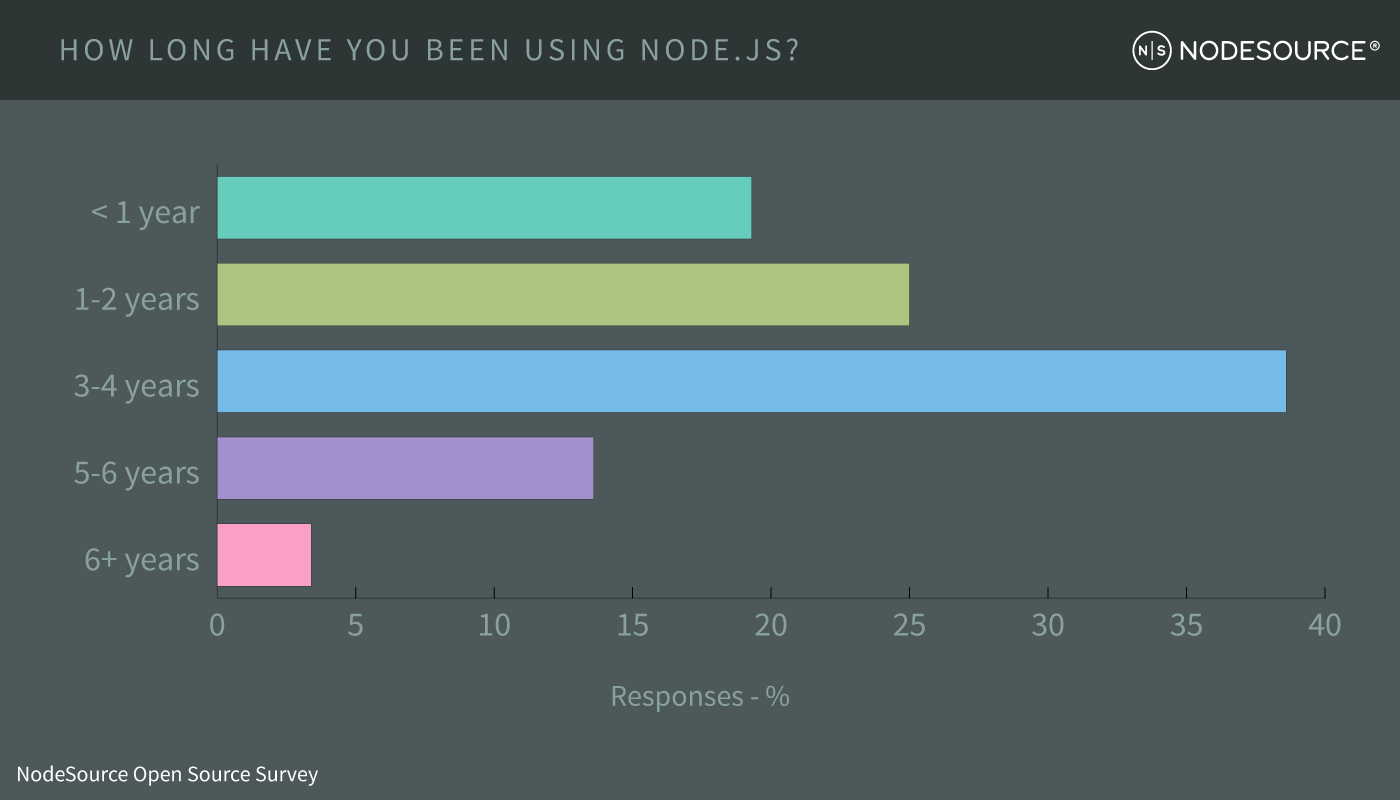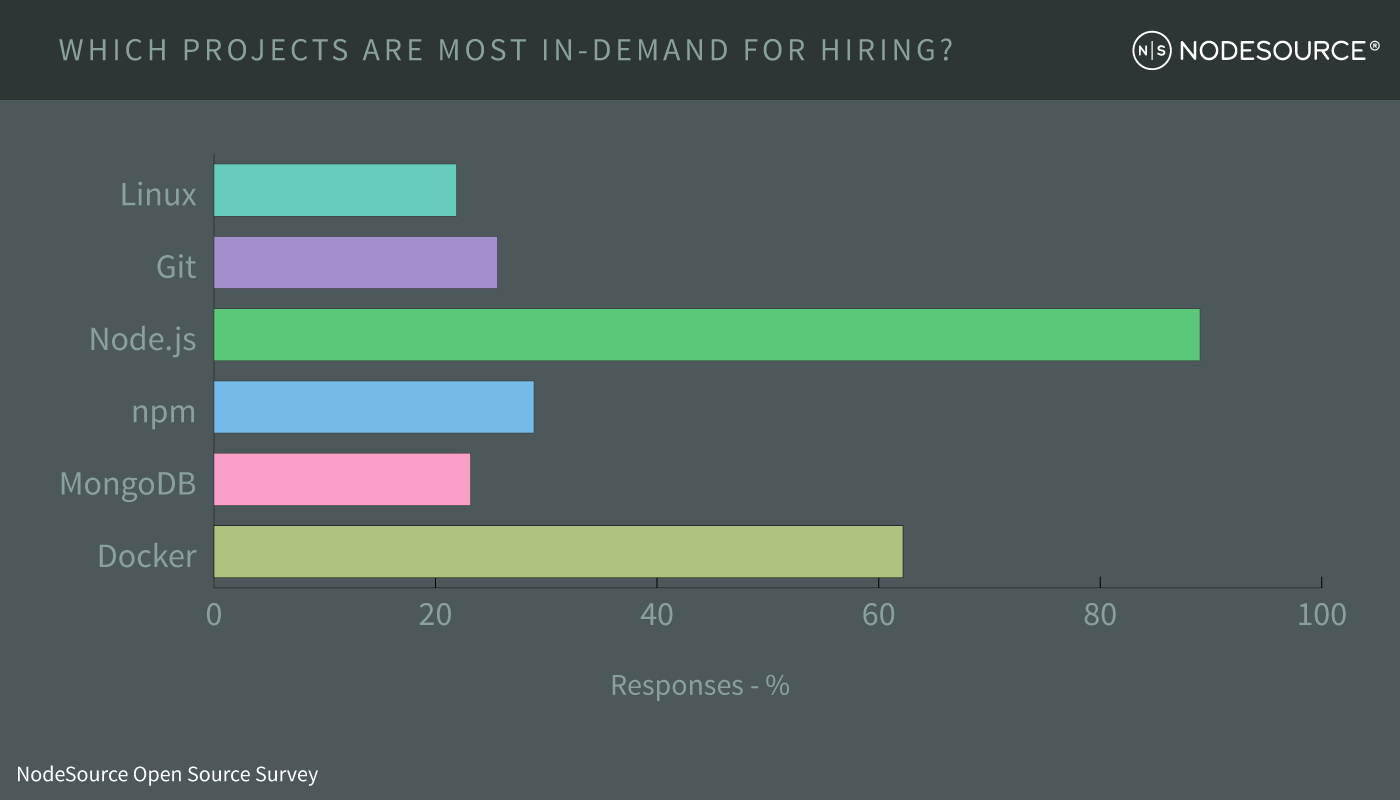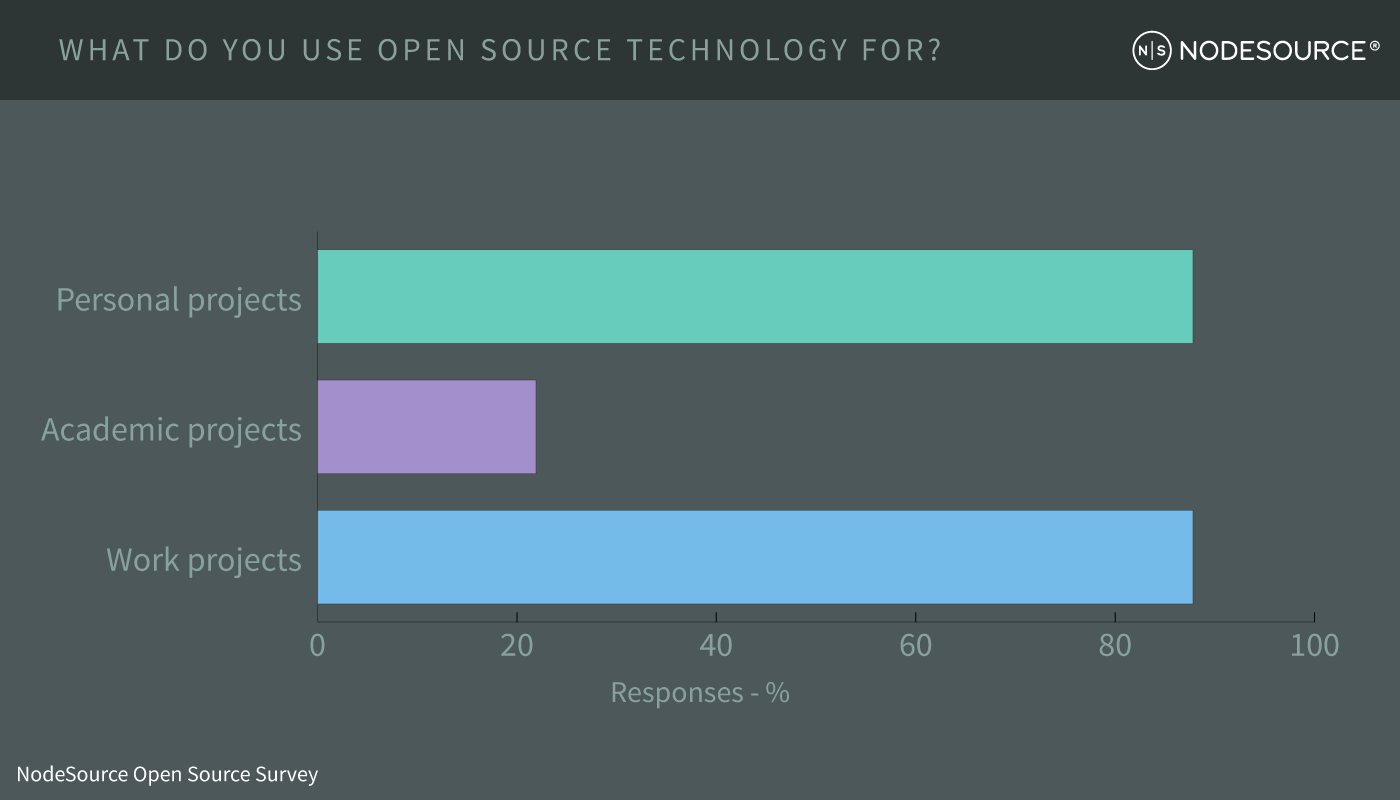Insights from an Open-Source Survey
A few weeks ago, we wrapped up a small survey on open-source software. The survey was focused on OSS and Node.js usage and turned up some results.
I’ve collected some of the most unexpected and most interesting data from the survey and, with the help of NodeSource team, pulled them into some pretty awesome charts to discuss the data and some of the ideas we can form from them.
People Have Been Using Node.js for a While!
One of the questions on the survey was about how long respondents have used Node.js. The response to our survey was a tad surprising and indicated that the majority of users had a good deal of experience in the Node.js ecosystem under their belt.

To me, there are two important parts of this graph. The first thing to note is that the most common answer is 3-4 years. This is incredible context, as it means we’re reaching the stage when there is a lot of solid, experienced Node.js talent out there.
As Node.js grows into new markets and the speed of growth accelerates even further, we’ve already got a good amount of core talent that's experienced enough to train and help new developers grow into the language and make it their own.
The second, and more important, context that we can draw from this is a tad bit abstract. If you take a look at the metrics as under 3 years (< 1 year and 1 to 2 years) and 3+ years (3-4 years, 5-6 years, and 6+ years), you can see that over 50% of people who answered have been using Node.js not only for 3+ years in addition to almost the same amount (literally, within 1%) having used Node.js for under 3 years. This number entirely supports the growth curve that we’ve heard about in Node.js for quite some time now.
Predictions for Open-Source Projects that are In-demand
A later question in the survey was about which technologies the respondents thought would be most in-demand for hiring. I decided to include this one because it shows an interesting correlation between perceptions around Docker and Node.js.

While not surprising that the graph has a majority for Node.js given our audience, there are some other factors here that caught my eye. One interesting part of this chart is that is that Docker was deemed the second highest in-demand tech, with nearly double the next closest. While the two technologies go hand-in-hand, it is interesting that none of the others were deemed to be nearly as important by the respondents.
The other is that those other four technologies are all hovering around the at the same percentage- meaning that the respondents, as a sample, weighted these technologies equally to each other. Combining that with the way that both Node.js and Docker are extreme outliers is an interesting correlation, and something I’m not quite sure how to interpre.
Open-Source is Perfect for Both Personal and Work Projects
A question on the survey asked about where people use open-source. The resulting answer was personally pretty astonishing:
 From the answers submitted, almost 90% answered that they use open-source for a personal project and they use it for work projects. This correlation, like the Node.js correlation with Docker, is pretty amazing. It means that OSS has moved from purely side projects and spare time work into something much greater - OSS is being adopted and cared about at work, for work. That’s a huge win for those of us who contribute and help maintain OSS projects.
From the answers submitted, almost 90% answered that they use open-source for a personal project and they use it for work projects. This correlation, like the Node.js correlation with Docker, is pretty amazing. It means that OSS has moved from purely side projects and spare time work into something much greater - OSS is being adopted and cared about at work, for work. That’s a huge win for those of us who contribute and help maintain OSS projects.
Another interesting note here is the number of respondents who said they use OSS for academic work. I am a member of this group, having used and incorporated Node.js, Gulp, and some workflow tools to help improve my academic work in college in addition to actually having OSS projects like TiddlyWiki as a core part of class curriculum. It’s interesting to see this number as high as it is, and I’m curious to continue digging to try and discover more about the use of open-source in academic settings.
One More Thing…
If you’re interested in more statistics and numbers surrounding Node.js, you’ll want to check out our Node by Numbers infographic for the entirety of 2016 - there are some truly amazing numbers in there.
Further, if you're new to OSS and Node.js and looking for some hands-on Node.js experiences for your team, we can probably help you out with an Arch Eval or a Node.js Training.
Otherwise, if you'd like to be kept in the loop with the latest news and announcements about Node.js, check out @NodeSource on Twitter. We'll keep you up to date with both the core project and the broader community.